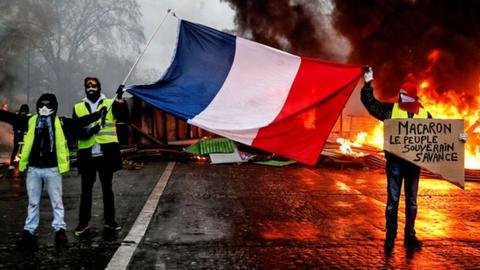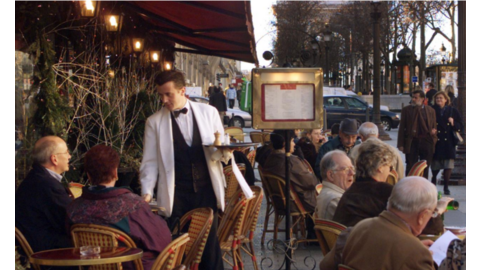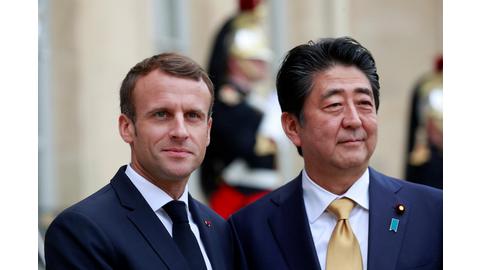France gears up for big privatisation drive

The coming year is set to be a busy one for France’s state-owned companies as President Emmanuel Macron paves the way for the first major government sell-off since he took office.
The state’s privatisation drive is set to accelerate in 2018 as it prepares to sell large chunks of its holdings in order to fund ambitious spending plans. France has equity positions in 81 French companies, totalling €100bn and ranging from defence companies such as Safran to carmakers such as Renault and the nuclear group EDF.
Stakes in Engie, the energy utility, and Française des Jeux, the state gaming company, are expected to be sold down this year while analysts have also suggested the state could sell part of its holding in Orange, the telecoms group. But Aéroports de Paris, operator of Paris Charles de Gaulle and Orly airports, has become the focus of attention.
According to multiple sources, the state has appointed Bank of America Merrill Lynch to explore options for the sale of ADP. France owns 50.6 per cent of ADP, which has a market capitalisation of €15.6bn. The next largest shareholder is Vinci, the French construction and infrastructure operator, with 8 per cent. The state agency that manages France’s holdings, Agence des participations de l’Etat, said “no decision has been taken by the government on possible changes in the capital of ADP”. But market watchers are confident, with bankers and analysts expecting at least a partial sale to happen at some point in the next year as Mr Macron looks to build up a €10bn innovation fund.
Earlier this year, the state sold a 4 per cent stake in Engie for €1.5bn, reducing its holding to about 25.5 per cent, and a 5 per cent stake in Renault for €1.2bn, taking its position to 15.1 per cent. Analysts at Natixis said “we have less and less doubt that ADP will be privatised” while media reports, confirmed by government sources, suggest the state will push legislation paving the way for greater privatisations this spring. However, complications lurk.
As one senior banker in Paris said of ADP: “This is going to be the first big privatisation. If you just look at the market capitalisation and build in a premium . . . it’s going to be huge. It’s going to be politically sensitive too, as this is one of the major pieces of infrastructure in the country.”
Analysts see various options for the state, including a full sale through blocks or to a single operator, which would involve a large premium over the share price of €158. ADP declined to comment while a spokesperson for Vinci, seen by analysts as the most likely buyer of a controlling stake, said: “We don’t know what the French government will decide.
We don’t know the timing, the terms and the conditions. Of course we will look at the tender if anything comes out.” The sale process will be additionally complicated because of the public service nature of the asset and the legal barriers to selling a controlling stake. “You cannot simply transfer to the private sector a monopoly on a public service forever.
ADP is currently the owner of the land and an indefinite licence,” said the same senior banker in Paris, speaking on condition of anonymity. One option is a split of ADP into two companies, one of which houses the real estate portfolio and another devoted to airport management. The advantage for the government would be to maintain control of the land, which is owned by ADP through a perpetual licence.
However, a simpler option could involve a direct stake sale where the state awards a long term but finite licence to run the airport. The land under that scenario would eventually revert to the state. “My understanding is it’s probably difficult to sell the perpetual rights of operating Paris airports . . . so you either split the airports or you move to a regime that is not an unlimited licence,” said a senior dealmaker in Paris.
According to French regulators, when the value of an asset is altered by the majority shareholder, minority shareholders have to be offered an exit at a fair price — a process simplified by a company taking control and launching a tender offer.
The question for the government, then, is how France wants to exit its holdings in ADP. “An airport is not something you can move. It’s something that, as a government, you can control through regulation. So keeping 10 or 20 per cent or whatever is a political stance. But the French do have some kind of national passion for state ownership,” said the senior dealmaker.
A push for smaller state participation in business has been growing in France, with the national auditor, the Cour des Comptes, saying in 2015 that in some cases the government’s demand for high dividends was to the “long-term detriment of the businesses”.
However, one senior government official said of strategic assets, such as in defence, that “when you’re on the board, you can guide the strategy from an operational point of view, you can make sure the priorities are the right ones”. On potential stake sales to come, the official said: “If the state were to decrease its stakes, we would make sure these companies do not fall into non-EU or non-French ownership.”
Source: https://www.ft.com/content/40446aa4-e4e9-11e7-97e2-916d4fbac0da


